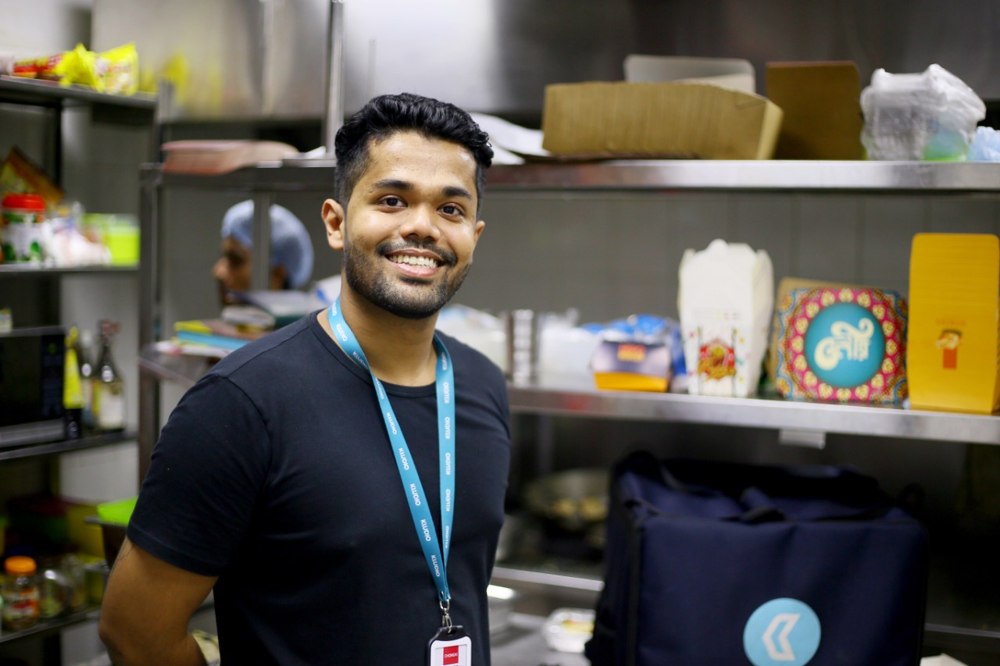
Kishwar Hashemee is the co-founder and CEO of Dhaka-based on-demand food delivery company Kludio, which defines itself as a “full-stack cloud kitchen and digital food court”. Since its founding, Kludio has launched 10+ food brands including popular brands like Dough On The Go, Fry Box, and Chowbox, all designed, owned, and managed by Kludio.
Like many founders, Kishwar started the company out of wanting to solve a problem, “in 2019, I noticed that food, technology, and operation were not designed for optimal doorstep experience despite burgeoning food delivery marketing growth. We wanted to change this imbalance in experience and quality by creating Kludio,” says Kishwar.
Kludio launched in 2019. It has raised US$500,000 to date from multiple prominent backers. Kludio has seen consistent growth over the past months. The company has also shown great resilience throughout the pandemic. Currently, Kludio has over 22,000 app users across its nine brands and delivers within the Banani, Mohakhali, Gulshan, Bashundhara, DOHS areas, and its periphery.

In an interview with Future Startup, Kishwar shared his lessons and insight on building a business from scratch. Here are Kishwar's takes on becoming a better founder:
1. On the upside of stress
Being a founder is a stressful job. It comes with the territory. In fact, stress is a major productivity killer for a lot of founders. However, stress is not always a bad thing.
“I don’t think stress is a bad thing,” says Kishwar. “More often than not, it’s a performance-builder. However, there is a fine line. Be aware of where your threshold is and navigate it using meditation, exercise, and talking to friends who are of diverse backgrounds to obtain differing perspectives.” At the same he suggests that it is critical to find ways to successfully deal with stress. “Stress management is critical to your mental well being and productivity. Honest conversations with co-founders, colleagues and the board of directors and investors can help you have clarity.”
2. On treating mistakes and failures as data points for future decision making and improvements
Reality is a feedback loop. You put forward an object or an action and you receive a reaction aka feedback. Now at times things and actions that you put forward could fail to go according to plan, which we call mistakes and failures. If reality is a feedback loop, our every mistake and failure is a simple data point that can help us improve our future actions.
“When things don’t go right, it’s not necessarily a mistake,” says Kishwar. “Even if it is one, think of it as a data-point in your journey that will allow you to make better decisions in the future.”
Now the feedback loop only works when you take the feed seriously and work on it. Kludio has a process for doing that. “We maintain a document at Kludio called ‘post mortem’ consisting of all our mess-ups so that we can refer back to them, and know what to avoid,” says Kishwar. There are companies that publicly share their screw ups and mistakes. These types of active processes to recognize and learn from previous mistakes allow companies to develop important competence.
3. On the necessity of embracing discomfort
Growth, personal or organizational, often exists outside of our comfort zone. Kishwar suggests for founders it is necessary to embrace challenges. “Embrace the discomfort,” says Kishwar. “Entrepreneurs frequently face uncomfortable decisions, but those are what help you build a meaningful company.”
4. On training oneself on being patient
Building a successful company takes a long time. Moreover, the journey is not always pleasant and easy. To that end, patience is an incredibly useful skill for founders. For Kishwar, patience is something founders should work to grow as muscle through regular practice and reinforcement.
“Patience is underrated,” says Kishwar. “You cannot innovate or create value unless you’re patient. Patience is not just a characteristic, it is a skill that can be learned and mastered.”
Learn more:
Read our interview with Kishwar Hashemee here.
Read our analysis on Kludio here.
Read our take on managing founder stress here.
